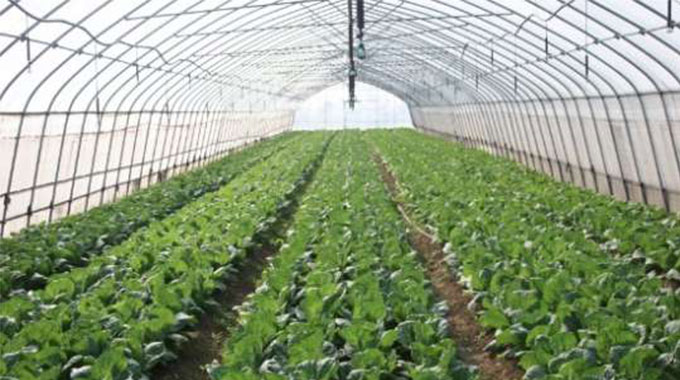
The Sunday News

ACCORDING to Economics Discussion.net, the agricultural sector is the backbone of any economy as it provides the basic ingredients to mankind and raw materials for industrialisation.
There is empirical evidence that the agricultural sector plays a strategic role in the process of economic development of a country. It has already made a significant contribution to the economic prosperity of advanced countries and its role in the economic development of less developed countries is of vital importance, according to an academic Dr Bright Singh.
“Increase in agricultural production and the rise in the per-capita income of the rural community, together with the industrialisation and urbanisation, lead to an increased demand in industrial production.”
According to Prof Kinderberger, Todaro, Lewis and Nurkse, agriculture makes its contribution to economic development in several ways. It plays a key role by providing food and raw materials to non-agricultural sectors of the economy and by creating demand for goods produced in non-agricultural sectors.
It also capacitates the rural people by giving them purchasing power earned from selling their marketable surplus.
It also provides investable surplus in the form of savings and taxes to be invested in non-agricultural sector. It also earns valuable foreign exchange through the export of agricultural products and providing employment to a vast army of unskilled and semi-skilled labour.
As a matter of fact, if the process of economic development is to be initiated and made self-sustaining, it must begin in the agricultural sector, experts say. It is behind that background that we applaud the Government for its continued efforts to make sure that the agricultural sector plays its role in as far as economic revival is concerned.
All shoulders must be behind the wheel to ensure that the policies and initiatives by Government come to fruition, bearing in mind that all these efforts are meant to make people’s lives better. Last week, President Mnangagwa said the national thrust for production should see Zimbabwe with a US$8,2 billion agriculture economy by 2025. The strategy will be underpinned by growing the economy, ensuring Zimbabwe grows its own food and ensuring that a vast swathe of rural families moves from poverty to growing affluence.
Speaking at the launch of the Agriculture and Food Systems Transformation Strategy, President Mnangagwa said the Government’s economic policies were aimed at industrialisation, modernisation and creating a sustainable investment environment in society.
The launch of the agriculture strategy comes after the launch of the US$5 billion National Tourism Strategy in Victoria Falls and the earlier launch of the US$12 billion mining industry strategy, all of which will see Zimbabwe attaining a US$25 billion economy in the three sectors by 2025 as the Government presses ahead with programmes designed to boost production, jobs and incomes in sustainable and permanent ways. The Agriculture and Food Systems Strategy complements the tourism and mining strategies and is an integral part of the national development agenda being driven by President Mnangagwa.
The President added that his administration was committed to ending hunger and poverty in line with the aspirations of Sustainable Development Goals (SDGs) and the 2014 African Union Malabo Declaration.
“This ambitious and yet achievable economic projection enjoins all of us across the economic and social spectrum to be more productive and work with greater synergies and collaboration. This action-oriented strategy provides the compass to the agriculture sector to fully exploit the inherent and God-given natural resources of land and water as well as our hardworking human capital,” said President Mnangagwa.
The strategy has seen the interventions such as the rebranded Climate-Proofed Presidential Inputs Support Programme that has seen the introduction of the Pfumvudza conservation agriculture programme, to ensure that farmers show commitment by accepting training and then use the new skills to ensure that best use is made of the inputs.
Government has also transformed Agribank into a land bank, which will provide a comprehensive financial and technical services to farmers and supporting projects aimed at promoting value chains in both private and community-based agriculture.



